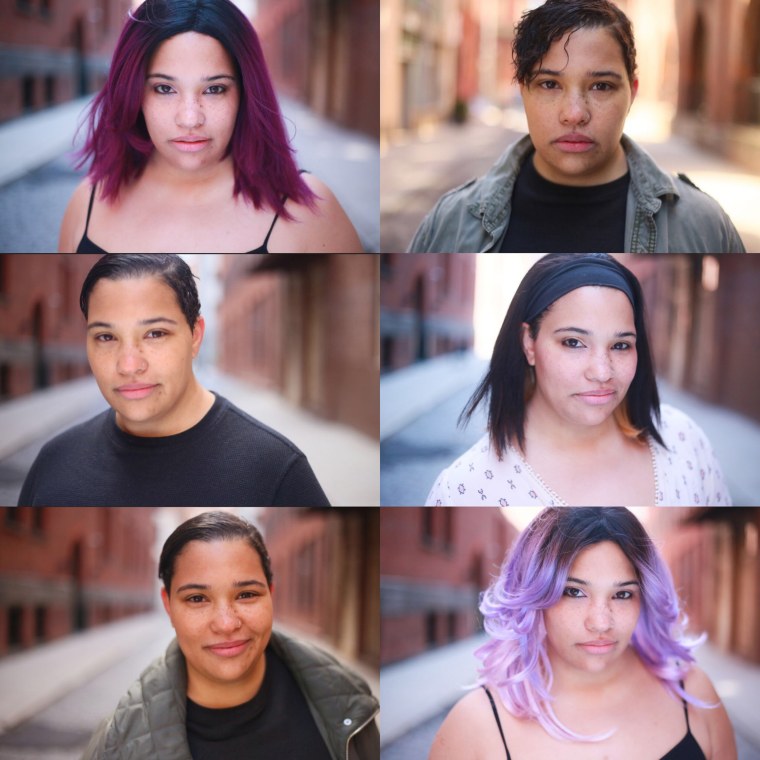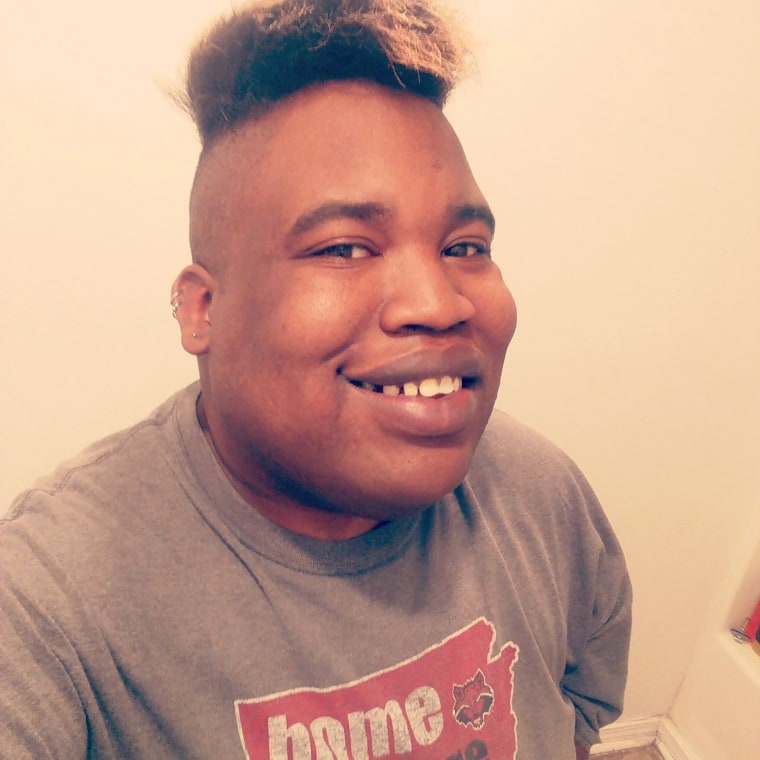For Nonbinary People, Struggle for Recognition Extends to Romantic Relationships
Rilen Taylor matched with someone on a dating site, but the experience went sour when the match insisted Taylor identify as only one gender, either as a man or as a woman.
“If we were to date, I needed to be a girl,” recalled Taylor, who identifies as both male and female and responds to male pronouns. “I think he misunderstood and thought I was a tomboy.”

This is just one of many uncomfortable experiences that Taylor — a freckle-faced, off-Broadway actor in New York — has faced as a nonbinary person trying to date in a binary world.
As more people, like Taylor, are coming out as neither exclusively male nor female, they are fighting for recognition not just legally, but also socially — and research shows this can be especially challenging in the dating world.
Taylor said most people who contacted him on dating platforms assumed he was a cisgender (non-transgender) woman, even though he described himself as “gender fluid” on his dating profile.
On the primary dating site Taylor used, he had to choose between identifying as either “male” or “female” — something that he said felt limiting and uncomfortable. Hovering over the two options, he ultimately clicked on “female,” the sex he was assigned at birth, but he made it a point to clearly disclose his nonbinary gender identity within his dating profile.
“Along with writing that I enjoy ‘The Fresh Prince of Bel-Air’ and that my favorite movie is ‘Scream,’ ‘Oh, by the way, here’s some trans 101 on what gender fluid is,’” he said.
Not having a nonbinary gender option on the drop-down menu “didn’t allow me to be upfront,” he said. “I was going to lose either way.”
Related
Neither male nor female: Why some nonbinary people are ‘microdosing’ hormones
Despite disclosing his gender identity within his profile, Taylor said “99.9 percent of the time, I was getting messages from men thinking I’m a cisgender woman. Occasionally, I got messages from women who thought I was a lesbian.”
These types of interactions were distressing, defeating and exhausting, Taylor said. One user asked if he had a vagina; another asked if he could have babies; and one, after realizing Taylor is nonbinary, simply wrote “sorry” and then blocked him on the dating site. Thinking back on his online-dating history, Taylor recalled how common it was for people he met online to lose interest as soon as they discovered he is not cisgender.
“If they had an option for me, then I could get it out of the way,” Taylor said.
In fact, a study published last month in the Journal of Social and Personal Relationships found more than 87 percent of people would not consider dating a transgender person at all.
A BATTLE FOR RECOGNITION
While nonbinary IDs are now available in at least a dozen states across the United States, and an increasing number of companies, including dating sites, are recognizing genders outside the male-female binary, a study published in the journal Sexual and Relationship Therapy concluded what many nonbinary people, like Taylor, have long known: The battle for recognition extends to romantic relationships.
“I thought I was going to have to be alone for the rest of my life or settle for mediocrity.”
RILEN TAYLOR
Researchers at Towson University’s Gender and Sexuality Lab interviewed nearly 400 nonbinary people, who were either currently in a romantic relationship or had been in one within the past five years. All of the respondents reported being subjected to experiences within their relationship that attempted to invalidate their gender identity, with some reporting they were only viewed as their sex assigned at birth, as opposed to the gender with which they identify, by their romantic partner.
“By the time you’re in a relationship, you’re there to get a different type of support,” study author and psychologist M. Paz Galupo said. “When you’re used to not being seen as valid and facing discrimination outside of your relationships, relationships can hold so much power and have a potential for healing, because it’s one place where you are truly seen.”
Not being seen as “valid” by a romantic partner can lead to a host of negative effects, including increased symptoms of depression and anxiety, according to the study.
Related
‘Boy or girl?’ Parents raising ‘theybies’ let kids decide
Nearly 15 percent of those surveyed reported their partners would attempt to block forms of social transition, like wearing clothing to express their gender identity, using a new name or getting gender-affirming health care, including hormone replacement therapy to more closely align their body with their gender.
“This is a romantic relationship, and this is where you go to build trust in others,” Galupo said. “If you feel like you can’t communicate or be fully yourself, then you might not feel like you can in your friendships — it’s harder to disclose or navigate outside that relationship.”
‘OUR IDENTITY IS A REAL THING’
The Towson study’s findings don’t come as a surprise to Ericka Hart, an award-winning sexuality educator in New York.
“The world doesn’t value nonbinary and trans folks, and that violence can rear its ugly heads in our relationships,” said Hart, a self-identified “black queer femme activist” who uses both female and gender-neutral pronouns.
Simply put, Hart said the lack of understanding in personal relationships mirrors society’s lack of empathy toward nonbinary individuals.
The extra work and worry can lead to depression and anxiety, she said.
“There are all these precautions they’d have to take to date people, so they can feel safe in their relationships,” she explained. “You can feel like you can’t date or that you’re undesirable.”
She said it’s not unusual for a nonbinary, agender or gender-nonconforming person to ask themselves, “Can I only date other trans people as a trans person?”

Blyss Bryant, 28, a nonbinary resident of Springfield, Missouri, uses gender-neutral pronouns. Because of past experiences, Bryant said they now exclusively date other transgender people.
“They understand that fear of not being accepted, feeling like you have to look a certain way to pass, and how scary it is to tell people about that part of you,” Bryant said.
Bryant said their previous cisgender partner of three months would constantly dismiss their chosen name and pronouns.
“I felt like he wanted to date a guy and not me. It’s invalidating,” they said. “It feels like they don’t see our identity as a real thing.”
‘WHO’S GOING TO LOVE ME?’
Constant rejection by others nearly made Taylor give up on finding a relationship on mainstream dating platforms.
“I felt like who’s going to love me for me with these binary dating sites? I thought I was going to have to be alone for the rest of my life or settle for mediocrity.”
Then, Taylor met his current partner online last year. Within weeks, the two hit it off and began a romantic relationship.
One day, as they sat in the living room of Taylor’s apartment, the two discussed the future of their relationship. Taylor recalled his partner, who is cisgender, turning to him and saying, “I don’t care if society believes we can’t be boyfriends.”
“My stomach dropped,” Taylor said. “It was an affirming and life-shattering moment. What I was to him was a guy, no big deal.”
“I never felt more seen in my life. I’m worthy to be who I am, and it shouldn’t be questioned,” he said. “For someone to affirm my male identity so freely is beautiful.”